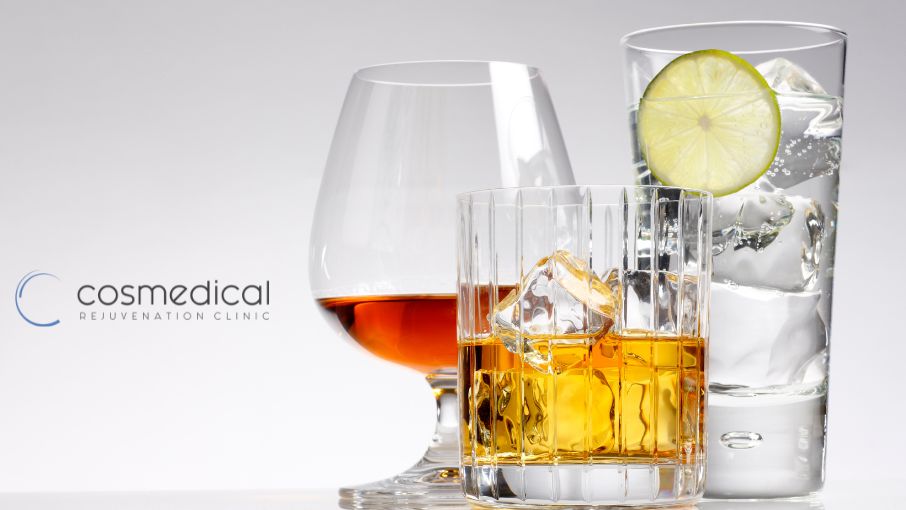
Drinking After Surgery
Alcohol is known to have various effects on the body, and these effects can be particularly pronounced during the post-surgical recovery period. Some of how alcohol can impact recovery after cosmetic surgery include:
1. Impaired wound healing: Alcohol consumption can interfere with the body's ability to heal wounds, as it can decrease the production of essential proteins and growth factors necessary for tissue repair.
2. Increased risk of infection: Alcohol can suppress the immune system, making infection a bigger risk. This can be particularly dangerous after surgery when the body is already vulnerable.
3. Interactions with medications: Many pain medications and antibiotics prescribed after surgery can interact negatively with alcohol, leading to adverse side effects or reduced effectiveness of the medicines.
4. Increased bleeding risk: Alcohol acts as a blood thinner, increasing the risk of bleeding complications after surgery, especially if the patient is already taking blood-thinning medications.
5. Dehydration: Alcohol is a diuretic. It increases urine production and, if fluids are not replaced, can lead to dehydration. Dehydration can hinder the healing process and cause additional complications.
When to Avoid Alcohol After Surgery
The general recommendation is to avoid alcohol consumption for at least 24 hours after surgery, as this is the period when the effects of anesthesia and other medications are most pronounced. However, this is a very general recommendation. The specific timeline for resuming alcohol consumption after any particular surgery is given to patients by their surgeon.
For more complex surgeries, patients may be advised to abstain from alcohol for several weeks or even months.
Patients with pre-existing liver conditions or a history of alcohol abuse should be particularly cautious about consuming alcohol after surgery, as their bodies may be more sensitive to its effects, and the risk of complications may be higher.
Talking to Your Surgeon about Drinking after Surgery
Before undergoing surgery, it is essential to have an open and honest conversation with your surgeon about your alcohol consumption habits and any concerns you may have about drinking after the procedure.
In some cases, your surgeon may recommend gradually reintroducing alcohol after a certain period, starting with small amounts and monitoring your body's response.
Alternatives to Alcohol
For those who may find it challenging to abstain from alcohol entirely during the recovery period, several alternatives can help manage stress and promote relaxation without the risks associated with alcohol consumption. These may include:
1. Engaging in gentle physical activity, such as walking or stretching, as permitted by your surgeon.
2. Practicing relaxation techniques, like meditation, or yoga.
3. Pursuing hobbies or activities that bring joy and fulfillment.
4. Seeking support from friends, family, or support groups.
5. Consulting with a mental health professional to address any underlying stress or anxiety related to the surgery or recovery process
Drinking alcohol after surgery can pose significant risks to the recovery process, including impaired wound healing, increased risk of infection, and interactions with medications. It is generally recommended to avoid alcohol consumption for at least 24 hours after surgery, and in some cases, abstinence may be advised for several weeks or months.
Call (647) 493-8177